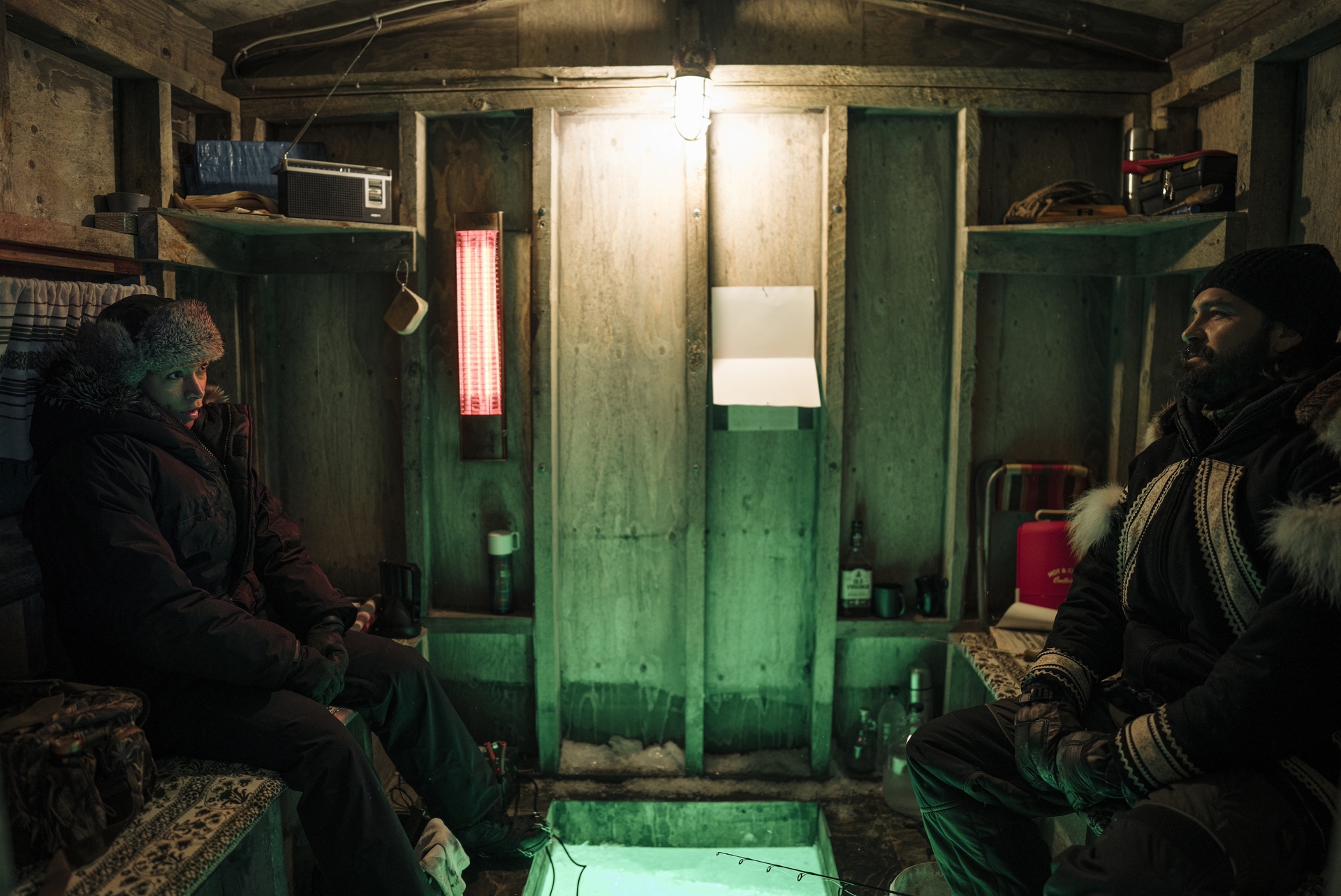Unknown Entities and Unsettling Discoveries in True Detective: Night Country
It seems relatively routine — some “hillbillies” scuffling in the waiting room of a hospital, calling Danvers (Jodie Foster) away from an interrogation. Navarro (Kali Reis), left behind to monitor the bedridden victim, pokes her head around the corner, craning to see the commotion. And then, behind her, the man in the hospital bed suddenly sits up.
The scene is spooky enough on its own, a casual startle like a bag rustling in Audition. But the sound design makes it even more hair-raising: first a gasp on the audio track; now the man’s voice is different, gravelly and growling. “Hello, Evangeline. Your mother says hello. She’s waiting for you.” Then he points, lies back, seizes, and codes out. True Detective is on some shit with this one.
This seems as strong a case for the supernatural hanging over the town of Ennis as any, in an episode littered with unreal details like this. Heck, even at the beginning of the interview, Navarro was on edge, after the victim muttered the spectral phrase she previously heard in her car: She’s awake. But episode 3 is also concerned with the practical matter at hand, the murder of Annie K., giving us our best glimpse yet at the woman and whatever happened to her. The hour spends a lot of time tracking Annie’s movements — an Ariana Grande sweatshirt marking the start of a relationship, blue hair dye leading to someone who knew about Annie and her secret scientist boyfriend, the impact she had as a midwife and the vacuum she left behind.
Ultimately, the best piece of evidence so far comes out of last week’s cliffhanger, Annie’s phone containing the chilling final video she recorded somewhere in the ice, the screams of which play the episode out. It’s stomach-turning (Prior can’t even bring himself to watch it again), and just as chilling as the moment between Navarro and the surviving scientist. Something about this mystery feels beyond our comprehension, and paranormal explanations are increasingly looking like the easiest reason why. But there again, episode 3 is careful to remind us that not all is as it seems: As Danvers recounts the case that drove her and Navarro apart, we get her voice-over laid on top of a memory of the pair raiding a home the last time they worked together. There’s a weariness to Foster’s voice here, on all sides. She seems tired of the dead man’s excuses, of her inability to help a 19-year-old girl out of an obviously bad situation, of her own limitations. And as she relays the story, everything went to hell there: An abusive asshole killed his 19-year-old girlfriend, “then he shot himself.”

Only that’s not what we see; right after that line from Danvers, the man in the flashback turns, with a ghoulish look on his face, and begins whistling. It makes sense that Prior isn’t getting the full story from Danvers, and in the same way, that the audience isn’t getting all the gory details from Night Country (yet — hopefully). We can’t make sense yet of Annie K.’s murder, or what that damned orange is doing on the ice (and again in the opening credits, peeled and spiraling out as “Bury a Friend” plays over flashes of important scene-setting). One sympathizes with Navarro trying to cut through Danvers’ Socratic method — fuck your games — and still following up on the demand: Ask the question.
In this way, True Detective: Night Country is making a strong case for itself as the best season yet, making the journey along the way feel just as important as who killed Annie, or whether Navarro really saw a man get possessed. When the show tells us to look one way over another, it feels worth it, even when it might seem like a distraction from the matter — whatever matter — is at hand.
At the end of each Night Country credits sequence, there’s a new image. In episode 3, it’s a small fishing hut, isolated and lonely on the ice. What happens there is a breakthrough for the case, sure — Navarro finds the location of a former Tsalal researcher — but it’s more a personal breakthrough for Navarro, recounting some of her life story for one of the few people she trusts, who breaks a small smile when she huffs back into the hut to fulfill his ask. The conversation she has there goes beyond merely the case, and Night Country is smart to linger there. True Detective isn’t telling us everything, but that doesn’t mean it’s telling us nothing.
